第81章 CHAPTER XXV NATIVE CUSTOMS(1)
KING MEHEVI!- A goodly sounding title!- and why should I not bestow it upon the foremost man in the valley? All hail, therefore, Mehevi, king over all the Typees! and long life and prosperity to his tropical majesty! But to be sober again after this loyal burst.
Previously to seeing the Dancing Widows I had little idea that there were any matrimonial relations subsisting in Typee, and I should as soon have thought of a Platonic affection being cultivated between the sexes, as of the solemn connexion of man and wife. To be sure, there were old Marheyo and Tinor, who seemed to live together quite sociably; but for all that, I had sometimes observed a comical-looking old gentleman, dressed in a suit of shabby tattooing, who appeared to be equally at home. This behaviour, until subsequent discoveries enlightened me, puzzled me more than anything else I witnessed in Typee.
As for Mehevi, I had supposed him a confirmed bachelor, as well as most of the principal chiefs. At any rate, if they had wives and families, they ought to have been ashamed of themselves; for sure I am, they never troubled themselves about any domestic affairs. In truth, Mehevi seemed to be the president of a club of hearty fellows who kept "Bachelor's Hall" in fine style at the Ti. I had no doubt but that they regarded children as odious incumbrances; and their ideas of domestic felicity were sufficiently shown in the fact, that they allowed no meddlesome housekeepers to turn topsy-turvy those snug little arrangements they had made in their comfortable dwelling. I strongly suspected, however, that some of those jolly bachelors were carrying on love intrigues with the maidens of the tribe, although they did not appear publicly to acknowledge them. I happened to pop upon Mehevi three or four times when he was romping- in a most undignified manner for a warrior king- with one of the prettiest little witches in the valley. She lived with an old woman and a young man, in a house near Marheyo's; and although in appearance a mere child herself, had a noble boy about a year old, who bore a marvellous resemblance to Mehevi, whom I should certainly have believed to have been the father, were it not that the little fellow had no triangle on his face. Mehevi, however, was not the only person upon whom the damsel Moonoony smiled- the young fellow of fifteen, who permanently resided in the house with her, was decidedly in her good graces. This too was a mystery which, with others of the same kind, was afterwards satisfactorily explained.
During the second day of the Feast of Calabashes, Kory-Kory- being determined that I should have some understanding on these matters-had, in the course of his explanations, directed my attention to a peculiarity I had frequently marked among many of the females,- principally those of a mature age and rather matronly appearance. This consisted in having the right hand and the left foot most elaborately tattooed; while the rest of the body was wholly free from the operation of the art, with the exception of the minutely dotted lips and slight marks on the shoulders, to which I have previously referred as comprising the sole tattooing exhibited by Fayaway, in common with other young girls of her age. The hand and foot thus embellished were, according to Kory-Kory, the distinguishing badge of wedlock, so far as that social and highly commendable institution is known among these people. It answers, indeed, the same purpose as the plain gold ring worn by our fairer spouses.
After Kory-Kory's explanation of the subject, I was for some time studiously respectful in the presence of all females thus distinguished, and never ventured to indulge in the slightest approach to flirtation with any of their number.
A further insight, however, into the peculiar domestic customs of the inmates of the valley did away in a measure with the severity of my scruples, and convinced me that I was deceived in some at least of my conclusions. A regular system of polygamy exists among the islanders, but of a most extraordinary nature,- a plurality of husbands, instead of wives; and this solitary fact speaks volumes for the gentle disposition of the male population.
I was not able to learn what particular ceremony was observed in forming the marriage contract, but am inclined to think that it must have been of a very simple nature. Perhaps the mere "popping the question," as it is termed with us, might have been followed by an immediate nuptial alliance. At any rate, tedious courtships are unknown in the valley of Typee.